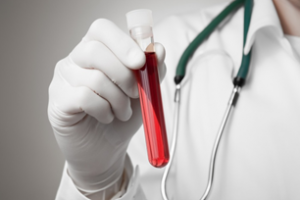The triple screening procedures the amount of three substances in a pregnant woman’s blood:
- Alpha-fetoprotein (AFP)
- Human chorionic Gonadotropin (HCG) and
- Estriol (uE3)
When a test for the hormone inhibin A is added, then these tests are called the maternal serum triple test, the expanded AFP test, the AFP plus test, or the multiple marker screening tests.
The amounts of these substances help your doctor find out the chance that your baby has certain birth defects, such as Down syndrome, spina bifida or anencephaly. You would need a diagnostic test called amniocentesis to find out for sure if there is a problem. The triple screening is usually done at 15 to 20 weeks of pregnancy.
Each substance tested in a triple screening gives you different information about possible problems. Together, these results give the best information. These screening tests look for the amount of:
- Alpha-fetoprotein (AFP) Alpha-fetoprotein (AFP), which is made by the baby’s liver.
- Human chorionic gonadotrophin (HCG) Human chorionic gonadotrophin (HCG), a hormone made by the placenta when a woman becomes pregnant.
- Estriol (uE3), a form of estrogen that increases during pregnancy. It is produced in large amounts by the placenta.
- Hormone inhibin A, a protein produced by the baby and the placenta.
A simple blood test is all that’s needed for these tests. The health specialist taking a sample of your blood will:
- Wrap an elastic band around your upper arm. This makes the veins below the band larger so it is easier to put a needle into the vein.
- Clean the needle site with alcohol.
- Put the needle into the vein.
- Attach a tube to the needle to fill it with blood.
- Remove the band from your arm when enough blood is collected.
- Put a gauze pad or cotton ball over the needle site as the needle is removed.
- Put pressure on the site and then put on a bandage.
This tests helps parents prepare for birth. If all the results are ordinary, parents know that they are less expected to have a baby with a genetic disorder.



